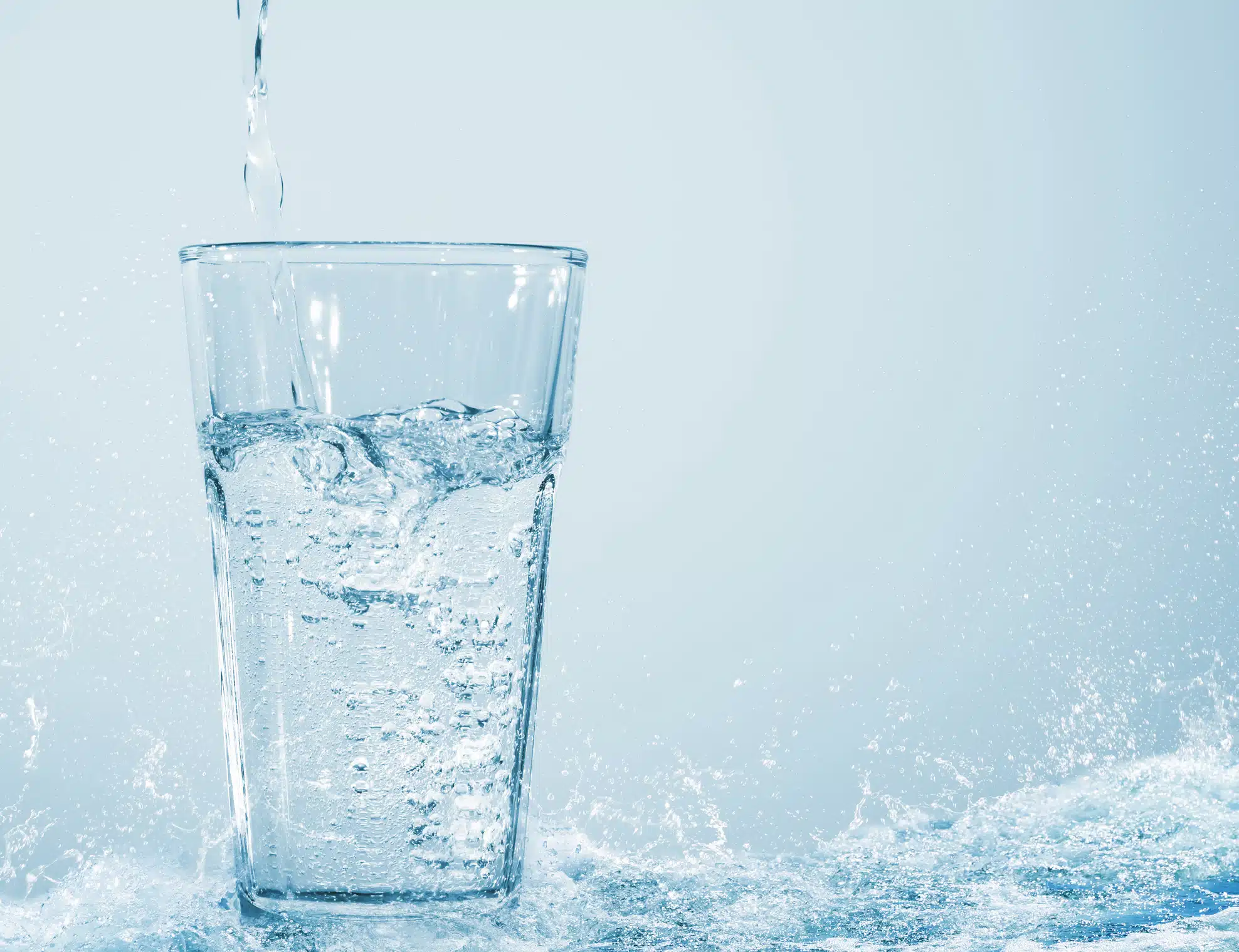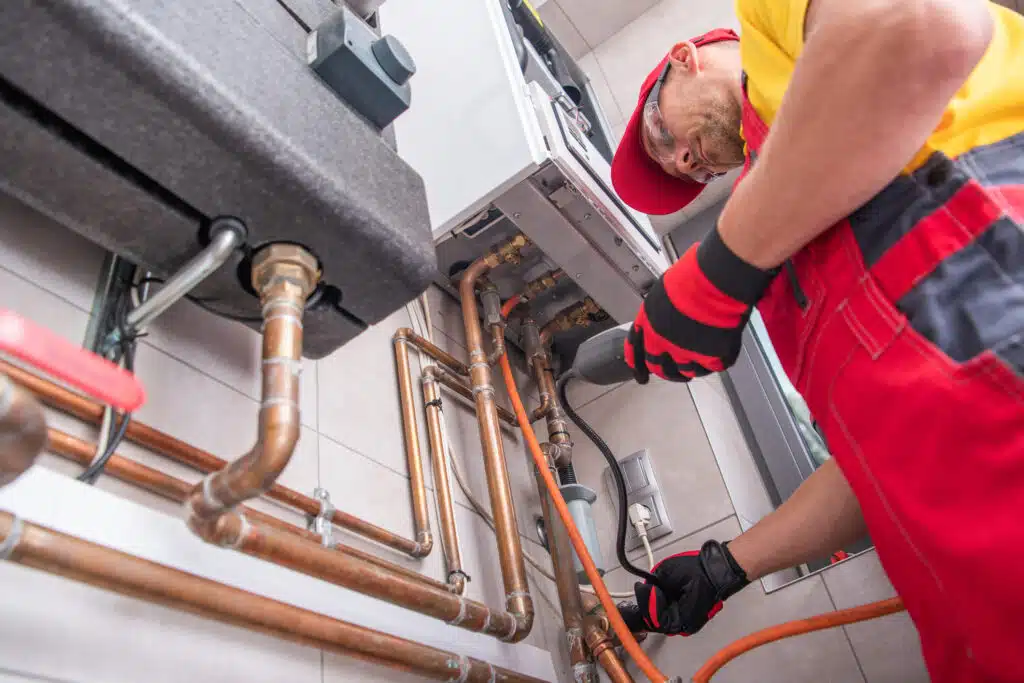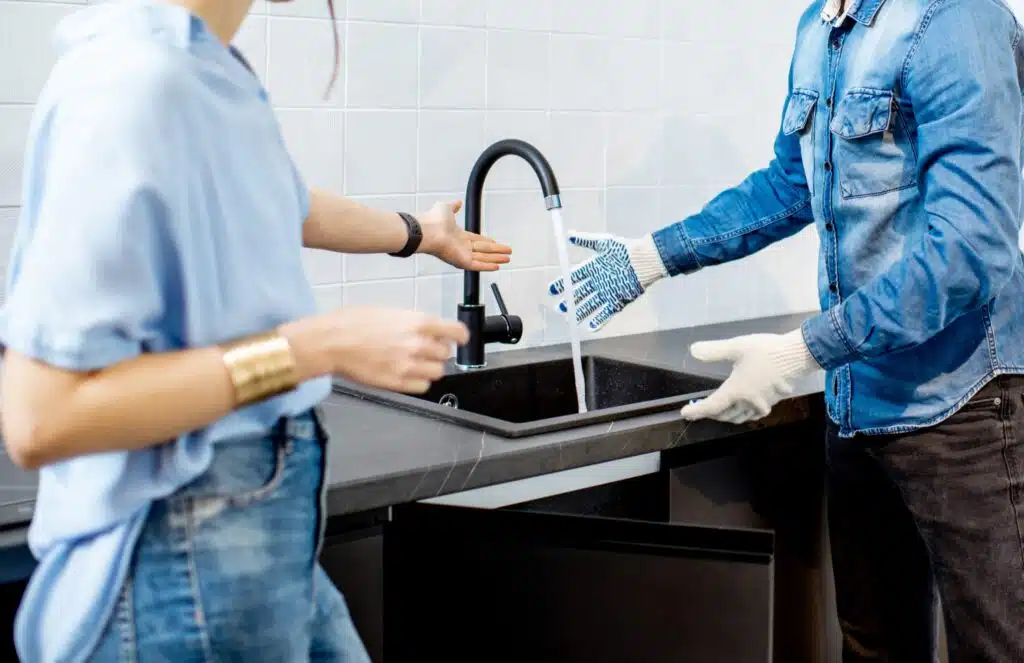Have you ever wondered if the water coming out of your tap is really as clean as it should be? Water quality plays a huge role in your everyday life, from what you drink to how well your appliances work.
Whether you’re in Lancaster, PA, or nearby areas like York or Harrisburg, knowing how to improve your water can make a big difference for your health and home. The good news? There are easy ways to make sure your water stays fresh, clean, and safe! Let’s dive in.
Understanding Water Quality
What is Water Quality?
Water quality refers to how clean, safe, and free of harmful substances your water is. It considers the presence of contaminants, minerals, bacteria, and chemicals that can affect your water’s taste, smell, and safety.
Some substances, like calcium or magnesium, are harmless in small amounts, while others, such as lead or chlorine, can cause health problems over time.
In places like Lancaster, PA, York, PA, and Harrisburg, PA, water quality can differ based on the local water supply, making it essential to keep track of what’s in your water. Ensuring good water quality protects both your health and the performance of your home’s appliances.
Why Does Water Quality Matter?
Water quality impacts more than just drinking water—it plays a critical role in everyday life. Contaminated water can result in skin irritation, unpleasant odors, or long-term health risks like exposure to harmful bacteria or metals.
It also affects appliances by causing buildup in plumbing systems, leading to clogs, reduced efficiency, and costly repairs.
Hard water, which contains excess minerals, can leave stains on sinks and dishes, wearing down household equipment over time. Maintaining high water quality ensures a healthier environment, keeps appliances running smoothly, and helps prevent expensive home maintenance issues.
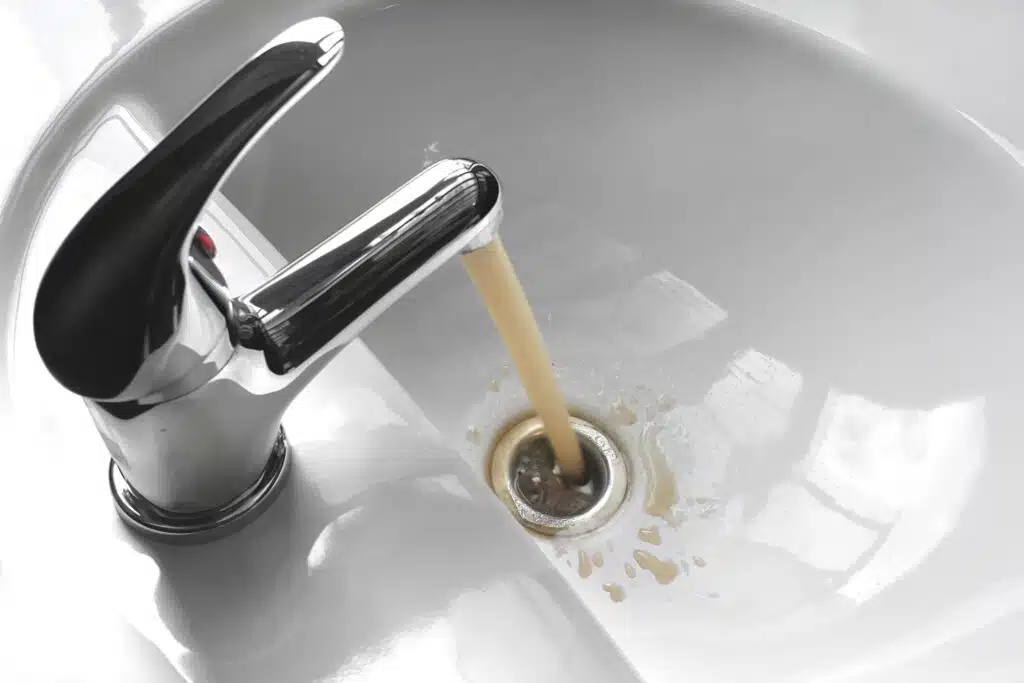
Common Water Contaminants
Water can contain various contaminants that affect both its safety and quality. Some occur naturally, while others result from human activities or aging infrastructure. These pollutants can harm health, alter taste, or cause unpleasant odors. Let’s explore some common contaminants in detail.
Bacteria and Viruses
Pathogens like bacteria, viruses, and parasites enter water through untreated sources, leaks, or sewage contamination. Common waterborne pathogens include E. coli, Salmonella, and Norovirus, causing gastrointestinal infections, diarrhea, and other severe illnesses, especially in children and the elderly.
Heavy Metals (Lead, Copper, and Arsenic)
Heavy metals can seep into water from corroded pipes or natural deposits. Lead, especially toxic to children, can cause developmental delays and cognitive issues. Arsenic in groundwater has been linked to cancer and cardiovascular disease.
Nitrates and Pesticides
Nitrates from fertilizers and pesticides used in farming often enter water through runoff. High nitrate levels can cause methemoglobinemia (blue baby syndrome), while pesticides may disrupt hormones and increase cancer risks.
Chlorine and Chloramine
These disinfectants are used by municipal water systems to kill bacteria but may leave water with a chemical taste or odor. High levels of chlorine exposure can cause skin irritation and create harmful byproducts like trihalomethanes (THMs), linked to certain cancers.
Industrial Chemicals (PCBs, PFAS, and Pharmaceuticals)
Pollutants like PCBs, PFAS, and pharmaceuticals enter water through industrial discharge and waste disposal. PFAS, known as “forever chemicals,” accumulate over time, posing risks like liver damage, high cholesterol, and immune dysfunction.
Sediments and Minerals
Sediments and minerals, such as calcium and iron, can alter water taste and cause issues like clogged filters. Excessive calcium creates hard water, leading to scale buildup and reducing appliance efficiency.
Radon and Radioactive Elements
Radon is a radioactive gas found in groundwater, especially near uranium-rich areas. Prolonged exposure increases lung cancer risk. Other elements, like uranium and radium, also leach into water from rocks, posing health risks over time.
Method 1: Install a Water Filtration System
What is a Water Filtration System?
A water filtration system is a device or setup that removes impurities and contaminants from your water supply, making it cleaner and safer to use. These systems are designed to filter out things like dirt, bacteria, chlorine, and even heavy metals such as lead.
Filtration can be installed at the point where water enters your home or at individual faucets to provide clean drinking water.
People in areas like Lancaster, PA, and York, PA, often use these systems to improve water quality, especially if their water supply contains high levels of minerals or other pollutants. Installing a filtration system ensures your water is free from harmful elements, providing peace of mind for your family.
Benefits of Using a Filtration System
A water filtration system offers many long-term benefits that enhance your family’s health, improve the performance of appliances, and protect your plumbing. Here are the key advantages of having a filtration system installed in your home:
- Improved taste and smell: Filtration systems remove unpleasant odors and chemicals, such as chlorine, leaving your water fresher and more enjoyable to drink. This makes a noticeable difference in beverages like coffee, tea, and juice, which taste better when made with filtered water.
- Health protection: By filtering out harmful contaminants like bacteria, viruses, pesticides, and heavy metals (such as lead), a filtration system reduces the risk of waterborne illnesses and keeps your drinking water safe. This is especially important in homes with children, seniors, or individuals with weakened immune systems.
- Longer-lasting plumbing and appliances: Minerals in hard water, like calcium and magnesium, can accumulate in pipes, causing clogs and corrosion over time. A water filtration system reduces this scale buildup, protecting your plumbing system and extending the lifespan of appliances like water heaters, dishwashers, and washing machines.
- Softer laundry, cleaner dishes, and healthier skin: Water that’s free of excess minerals helps prevent soap scum and mineral deposits from forming. This means your clothes will feel softer, your dishes will come out cleaner without spots, and your skin and hair will feel less dry and irritated after bathing.
- Consistent access to high-quality water: A filtration system provides peace of mind by offering a reliable, long-term solution to ensure that the water throughout your home is clean, clear, and safe for all uses, from drinking to cleaning.
Having a filtration system not only improves water quality but also reduces the need for frequent plumbing repairs and appliance maintenance, saving you money in the long run. With clean, filtered water flowing from every tap, you’ll enjoy healthier living and greater convenience throughout your home.
Choosing the Right System
Choosing the right water filtration system depends on the type of impurities you want to remove and the needs of your household. Activated carbon filters are great for eliminating chlorine and improving taste, while reverse osmosis systems go further by removing heavy metals and other contaminants.
There are also UV systems that kill bacteria and viruses, perfect for homes with well water. If you live in Harrisburg, PA, or surrounding areas, it’s helpful to test your water first to understand what’s in it before choosing a system. The right filtration system ensures you get the best water quality without unnecessary filters or expenses.
Method 2: Regularly Test Your Water
Why Test Your Water?
Regularly testing your water is essential to ensure it’s safe and free of harmful contaminants. Water can change over time, especially if you’re relying on municipal sources, wells, or older plumbing systems. Contaminants like bacteria, lead, and nitrates may enter the water without warning, posing health risks to you and your family.
In areas like Lancaster, PA, and York, PA, testing water regularly helps you stay ahead of any changes in quality. Routine testing provides peace of mind, especially if you’ve noticed changes in taste, odor, or appearance.
How to Test Water Quality
Testing your water can be done through several methods, depending on the level of detail you need. Here are the most common ways to test your water and understand what’s flowing through your taps:
- Home Testing Kits: These kits are easy to use and offer quick insights into common water quality issues such as pH levels, water hardness, and chlorine content. They’re ideal for routine monitoring and are available at most hardware stores.
- Professional Water Testing Services: For more precise results, professional testing is the way to go. These services can detect harmful contaminants like lead, bacteria, or pesticides that home kits might miss. Professional labs also provide detailed reports to help you decide whether further action is needed.
- Local Water Testing Programs: In some areas, such as Harrisburg, PA, local authorities offer water testing services or send out reports with important water quality information. This can be a helpful starting point for homeowners unsure about what’s in their water.
- Well Water Testing: If your home relies on a private well, regular testing is essential since well water isn’t regulated by municipal systems. A professional test can screen for contaminants like nitrates, E. coli, or heavy metals commonly found in groundwater.
- Third-Party Testing Providers: Many certified laboratories offer testing services by mail, allowing you to send a water sample and receive an in-depth report with safety recommendations.
Whichever method you choose, testing your water regularly ensures you have a clear picture of its quality and helps you address any issues before they become a bigger problem.
Understanding Test Results
Reading water test results can feel a little overwhelming, but understanding them is important for taking the next steps. Results typically show levels of pH, hardness, chlorine, and the presence of contaminants like lead, iron, or nitrates.
If any of these levels are higher than the recommended safety range, it may indicate the need for a filtration system or plumbing repair.
Water hardness results show the mineral content, which can affect your appliances, while pH results tell you if your water is too acidic or alkaline. Knowing how to interpret these results ensures that you can address any water quality issues quickly and effectively.
Method 3: Maintain Your Plumbing System
Importance of Plumbing Maintenance
Keeping your plumbing system in good shape plays a significant role in maintaining high water quality. Over time, pipes can corrode, accumulate mineral deposits, or develop leaks, which can introduce contaminants into your water.
Old plumbing systems are especially prone to issues that may affect both the taste and safety of your water. Regular maintenance ensures your water flows efficiently and remains free of debris, rust, or harmful substances.
For homeowners in places like Lancaster, PA, and York, PA, maintaining plumbing is essential to avoid costly problems and keep water quality high.
Signs of Plumbing Issues
Plumbing issues often go unnoticed until they affect water quality or cause visible damage. Identifying these signs early can save you from costly repairs and help maintain clean, safe water. Here are common signs to watch for:
- Strange odors from tap water: Smells like sulfur or chlorine may indicate contamination from bacteria or chemical imbalances, signaling the need for testing or treatment.
- Discolored water: Brown, yellow, or cloudy water often points to rust or sediment buildup in aging pipes, suggesting corrosion or deteriorating plumbing.
- Low water pressure or inconsistent flow: Sudden drops in pressure may mean clogged pipes, mineral buildup, or hidden leaks that require immediate attention.
- Clanking or banging noises (water hammer): Air pockets or loose components disrupt water flow, weakening pipes over time.
- Limescale buildup: Minerals in hard water, such as calcium, clogged faucets, and appliances, reduce efficiency and leave stubborn stains.
- Rusty or metallic-tasting water: Corroding pipes release rust, affecting water quality and potentially damaging plumbing.
- Mold or water stains: Leaks around fixtures can cause structural damage and health risks, increasing the chance of contamination.
Addressing these issues early helps prevent serious plumbing failures, keeping your water system safe, reliable, and efficient.
When to Call a Professional
Some plumbing maintenance can be handled on your own, but more serious issues require the help of a licensed plumber. If you notice discolored water, leaks, unusual noises, or a drop in water pressure, it’s best to have a professional inspect your system before the problem worsens.
Regular maintenance visits can catch hidden problems, such as corroded pipes, backflow issues, or aging fixtures, that affect water quality and efficiency. A professional can also identify and address hard water buildup, which can damage appliances over time.
In areas like Harrisburg, PA, plumbers are familiar with local water challenges, including mineral-rich water or older plumbing infrastructure, and can recommend the right solutions to keep your system running smoothly. By calling in a professional when needed, you ensure that your plumbing stays in top condition and that your water remains safe, clean, and reliable for everyday use.
Take Control of Your Water Quality Today!
Don’t let impurities in your water impact your family’s health or damage your home’s appliances! At Benjamin Franklin Plumbing of Lancaster, we specialize in providing expert solutions to help residents in Lancaster, York, and Harrisburg, PA, enjoy cleaner, safer water.
Whether it’s installing a filtration system or maintaining your plumbing, our team has the experience you can trust. Contact us today to schedule your service and start experiencing the difference of fresh, reliable water throughout your home.
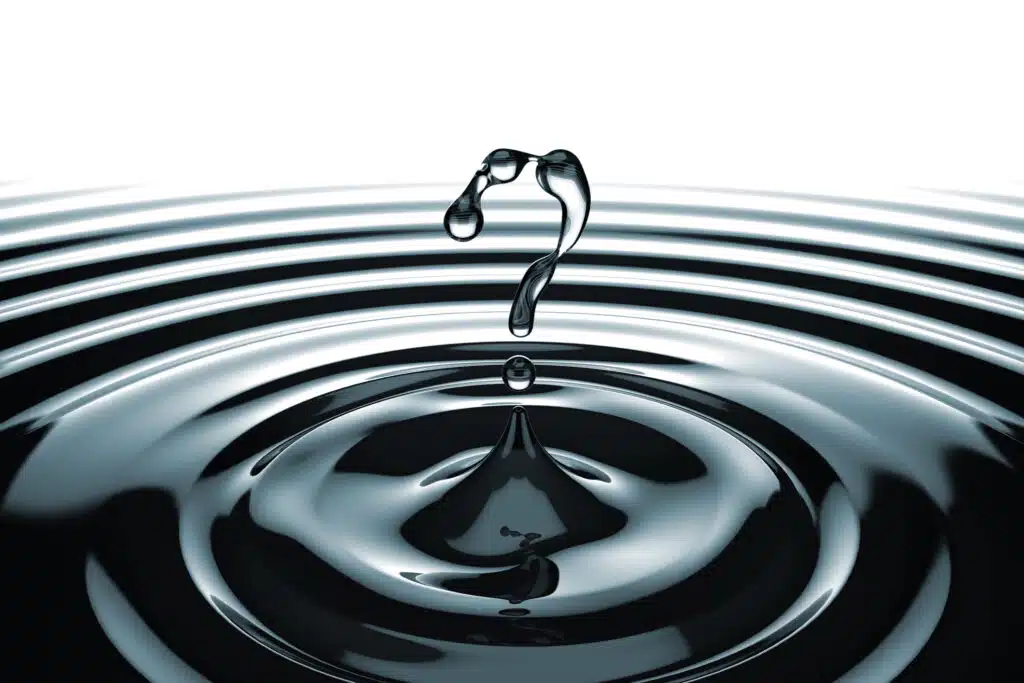
FAQs
What are common contaminants in water?
Common water contaminants include bacteria, lead, chlorine, nitrates, and iron. These can enter the water supply from corroded pipes, agricultural runoff, or water treatment chemicals. Hard water, which contains excessive minerals like calcium and magnesium, is also a frequent issue in many areas, affecting both appliances and water quality.
How often should I test my water?
It’s recommended to test your water at least once a year, especially if you rely on well water or live in an area prone to water quality issues. If you notice changes in taste, odor, or color, it’s wise to test it right away. After installing a filtration system, regular testing ensures the system continues working properly.
Can I improve water quality without a filtration system?
Yes, you can make improvements through routine plumbing maintenance and by testing your water regularly. Fixing leaks, cleaning aerators, and flushing your pipes can reduce contaminants. However, a filtration system offers the most consistent solution for ensuring your water stays clean and free of harmful substances.
What’s the best way to deal with hard water?
Installing a water softener is the most effective way to manage hard water. This system removes excess minerals like calcium and magnesium, preventing buildup in pipes and appliances. Regular maintenance of faucets and appliances can also help reduce the effects of hard water.
What if my water smells like chlorine?
A chlorine odor is common in tap water treated by municipal systems. While chlorine keeps water free from bacteria, too much can affect taste and smell. Activated carbon filters are effective at removing chlorine from drinking water, giving you fresh-tasting water without the chemical odor.
Why is my water pressure low?
Low water pressure can result from clogged pipes, mineral buildup, or hidden leaks. It can also indicate issues with your water supply line or pressure regulator. Identifying the cause early can prevent further plumbing damage and ensure consistent water flow.








